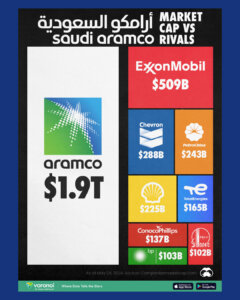Making sense of the markets this week: June 9, 2024
Bank of Canada cuts the key interest rate, Lululemon has a good quarter, Nvidia’s rapid climb continues, Saudi oil company reigns, and a new type of savings account comes to Canada.
Advertisement
Bank of Canada cuts the key interest rate, Lululemon has a good quarter, Nvidia’s rapid climb continues, Saudi oil company reigns, and a new type of savings account comes to Canada.

Kyle Prevost, creator of 4 Steps to a Worry-Free Retirement, Canada’s DIY retirement planning course, shares financial headlines and offers context for Canadian investors.
While The Big Short film is a riveting watch, “The Big Cut” may be even more enthralling.
The Bank of Canada (BoC) made the decision to cut its key interest rate to 4.75% on Wednesday. It’s the first rate cut since March 2020. With about $700 million worth of mortgages coming up for renewal in Canada this year, “The Big Cut” is going to affect a lot of Canadians.
“We’ve come a long way in the fight against inflation. And our confidence that inflation will continue to move closer to the 2% target has increased over recent months.”
– BoC Governor Tiff Macklem
Macklem also said: “Total consumer price index inflation has declined consistently over the course of this year, and indicators of underlying inflation increasingly point to a sustained easing.”
However, in the tradition of central bankers the world over, Macklem was also careful to speak using neutral language, pointing out that the BoC was going to take things “one meeting at a time.” He added “We don’t want monetary policy to be more restrictive than it needs to be to get inflation back to target. But if we lower our policy interest rate too quickly, we could jeopardize the progress we’ve made.”
While the BoC was the first G7 country to begin cutting interest rates, the European Central Bank followed suit on Thursday, cutting its key interest rate from 4% to 3.75%. Market experts are speculating that the BoC will cut interest rates three or four more times in 2024. (There are four announcements left on the BoC interest rate schedule).
The BoC (as well as many other central banks) have taken a lot of flak over the last couple of years. But if they manage to cut interest rates, get the economy growing again, and avoid resurgent interest rates, then they deserve a hand. Such a Goldilocks scenario would certainly qualify as a “soft landing” by most economists’ definitions.
If the BoC manages to slowly cut interest rates, while managing to get the economy growing again—all without supercharging inflation—that would certainly qualify as a “soft landing” by most economists’ definitions.

Get up to 4.00% interest on your savings without any fees.

Lock in your deposit and earn a guaranteed interest rate of 3.55%.

Earn 3.7% for 7 months on eligible deposits up to $500k. Offer ends June 30, 2025.
MoneySense is an award-winning magazine, helping Canadians navigate money matters since 1999. Our editorial team of trained journalists works closely with leading personal finance experts in Canada. To help you find the best financial products, we compare the offerings from over 12 major institutions, including banks, credit unions and card issuers. Learn more about our advertising and trusted partners.
It was a relatively slow week for earnings news, but Canadian retailers Lululemon and the North West Company let investors know how they did last quarter. Note: Lululemon releases its earnings numbers in U.S. dollars, while the North West Company releases its earnings in CAD. You might remember the North West Company from your history textbooks, as the Winnipeg-based grocery chain is significantly older than Canada (1779 versus 1867).
The latest share prices and revenue for Lulu and NWC.
Lulu shared a mostly positive earnings report and saw its share price rise 8% on Wednesday. This was welcome news for shareholders who have watched the stock go down over 36% year to date. Shares of the North West Company were flat the day after announcing earnings that were in line with expectations. (Read more about Lululemon’s earning report.)
Meanwhile, a quick update to this column on Nvidia from a couple of weeks ago; the company’s momentum has now hit stratospheric levels, passing both the USD$3 trillion level and Apple’s market cap. Nvidia is closing in on world market cap leader Microsoft (currently at about USD$3.15 trillion) and may soon find itself as the biggest company in the world. Furthermore, as of today (Friday), Nvidia is putting through a 10-for-1 stock split.
That said, it’s becoming pretty clear that the decision-making around buying Nvidia’s stock is becoming increasingly manic and unchained from fundamentals. Nvidia may be the best chip-making company in the world, but with the market for semiconductors growing this quickly, you can bet other companies will work hard to gobble up market share. As a consequence, Nvidia’s enviable profit margins are likely to compress.
Read more of my take on retail stocks at milliondollarjourney.com.
It’s interesting to note that out of the seven companies worth more than a trillion dollars (US$) in the world, only one is a fossil fuels company. Not only is Saudi Aramco (SAR/TADAWUL) the sixth largest company in the world (virtually tied with Amazon at USD$1.8 trillion), it’s actually worth more than the next eight largest publicly-traded oil companies put together. It’s also the only trillion-dollar company located outside the United States.

By comparison, Canada’s biggest energy companies are Canadian Natural Resources at about US$76 billion and Suncor at US$48 billion. Those are two of Canada’s largest employers with more than 10,000 employees each, but they pale in comparison to Aramco’s 70,000-plus headcount.
Furthermore, Aramco’s IPO back in 2019 remains the largest IPO in history (valuing the company at US$1.7 trillion). With nearly 260 billion barrels of oil in proven reserves, Aramco dwarfs the reserves of rivals ExxonMobil (17.7 billion barrels) and Chevron (11.2 billion barrels).
All that said, investing in Aramco is not without risk. The Organization of Petroleum Exporting Countries and its allies (better known as OPEC+) recently announced it would be extending production cuts into 2025 in order to keep prices stable during a demand downturn.
OPEC+ is currently cutting about 5.7% of the world’s global crude oil supply in order to offset the boom in oil production from the U.S. Despite the cuts, crude oil prices are down substantially over the last couple months, hovering around USD$77 per barrel this week.
Because Saudi Arabia’s government depends on the Aramco’s oil-fuelled dividends to such a high degree, the International Monetary Fund estimates that oil prices need to trade around $81 a barrel in order for the current government budget to balance. The International Energy Agency cut its global oil demand estimate by 140,000 barrels per day this year citing weak demand in Europe and China.
We previously mentioned the iShares MSCI Saudi Arabia ETF (KSA/NYSE), and it’s up about 17% over the last year.
EQ Bank introduced a really interesting new type of savings account to Canada this past week, called the EQ Notice Savings Account. It’s a bit like a very short-term guaranteed investment certificate (GIC), and is super easy to sign up for and use if you already have a regular banking account with EQ. The account allows you to enjoy a 4.5% interest rate if you commit to not withdrawing your money for 10 days, and a 5% interest rate if you commit to a 30-day deposit period.
There are unique accounts in Canada that are somewhat similar to what EQ has done. Notably, the Canadian Western Bank has a Flex Notice Account that lets you withdraw money after 31 or 93 days, while enjoying a 4.6% to 5.5% interest rate. Interestingly, notice accounts are fairly common in the U.K. and Japan has a similar two-week product known as a circle deposit.
The term notice account generally refers to the concept of having to give notice of withdrawal a specific number of days before you need the cash. In the case of EQ’s new notice account, you are sort of “giving notice” simply by selecting the 10-day or 30-day option when you deposit the cash.
Mahima Poddar, senior vice president and head of personal banking at EQ said in a news release: “The launch of our EQ Bank Notice Savings Account brings much-needed product innovation to Canadians who deserve the best from their banks. Notice savings accounts maintain a balance between flexibility and great interest rates, making them a perfect choice for Canadians who are willing to plan their withdrawals in advance to maximize their savings growth. Our no-fee, no minimum balance and all-digital account offers all EQ Bank customers access to the same rates so they can save as much or as long as they want.”
The EQ Notice Savings Account* is currently not available within tax-advantaged accounts, such as registered retirement savings plans (RRSPs), tax-free savings accounts (TFSAs), registered education savings plans (RESPs) and first home savings accounts (FHSAs).
Read MoneySense’s ranking of “Best online banks in Canada” and “How to save money in Canada: A new way that offers higher interest and more flexibility.”
Affiliate (monetized) links can sometimes result in a payment to MoneySense (owned by Ratehub Inc.), which helps our website stay free to our users. If a link has an asterisk (*) or is labelled as “Featured,” it is an affiliate link. If a link is labelled as “Sponsored,” it is a paid placement, which may or may not have an affiliate link. Our editorial content will never be influenced by these links. We are committed to looking at all available products in the market. Where a product ranks in our article, and whether or not it’s included in the first place, is never driven by compensation. For more details, read our MoneySense Monetization policy.
Share this article Share on Facebook Share on Twitter Share on Linkedin Share on Reddit Share on Email